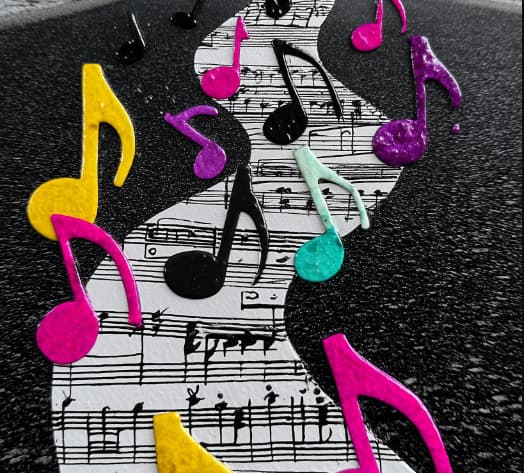In an age where music is more accessible than ever, the question is no longer how to find new songs — it’s who to trust when deciding what’s worth listening to. With streaming platforms flooding listeners with recommendations generated by algorithms, there’s a growing desire for human voices — curators, critics, and enthusiasts — to guide the experience. Enter music blogs and independent reviewers, a group of passionate tastemakers who continue to shape public perception and artist success in unexpected ways.
While the music industry has undergone massive changes over the past two decades, these independent voices remain an influential — and often overlooked — force in defining what rises, what fades, and what resonates.
The Evolution of Music Criticism
There was a time when music journalism was dominated by a handful of large publications: Rolling Stone, NME, Spin, and Pitchfork led the discourse on albums, concerts, and emerging artists. With the rise of digital media, however, barriers to entry fell. Suddenly, anyone with an opinion and an internet connection could publish reviews, run a newsletter, or build a loyal audience through a blog or YouTube channel.
This decentralization of music commentary has created both challenges and opportunities. On one hand, readers now face an overwhelming number of voices. On the other, the diversity of perspectives has grown. From niche genre blogs to hyperlocal scenes, today’s music criticism is more inclusive and varied than ever.
Why People Still Trust Independent Reviewers
Even in the algorithm-driven world of Spotify Discover Weekly or Apple Music recommendations, there is something inherently human about music discovery. Listeners often look for a sense of authenticity and connection — two qualities that independent reviewers provide in spades.
Unlike mass media outlets or playlist algorithms, independent critics often write from a personal place. They are not constrained by commercial partnerships or ad-driven metrics. Many are fans first, writers second. This passion-based commentary helps build trust with readers who are tired of over-polished PR language or data-driven content.
These reviewers also tend to specialize. One blog might focus solely on underground electronic releases, while another champions indie folk artists from South America. This curation helps readers dive deeper into genres or scenes that might be overlooked by mainstream sources.
The Role of Music Blogs in the Streaming Era
While music streaming services dominate how we access and consume songs, they are not particularly strong at providing context. A blog, on the other hand, offers something algorithms can’t: storytelling.
A well-written review or feature can give listeners a glimpse into an artist’s journey, explore lyrical themes, or connect a new release to broader cultural trends. Blogs also often interview artists, spotlight producers, or cover live shows — giving fans a richer understanding of the music they love.
Moreover, music blogs act as archives. They capture a moment in time — a debut EP, a local show, a viral remix — and preserve it with commentary. For artists, being written about on an influential blog can be a rite of passage, a badge of credibility, or even the spark that propels them toward wider recognition.
Platforms That Empower Independent Voices
Several platforms have emerged to support independent reviewers and music writers in building audiences.
Medium has become a popular place for longform music essays and think pieces. Substack allows critics to run subscription-based newsletters. YouTube and TikTok offer visual formats where reviewers can share reactions, breakdowns, or rankings.
Podcasts are another booming medium. Music-focused shows now span everything from album retrospectives to in-depth genre discussions. These formats allow for personality-driven criticism, where the reviewer becomes part of the draw — not just the music being discussed.
Social media also plays a vital role. Twitter threads, Instagram stories, and Reddit AMAs all help music writers engage directly with audiences and artists. This conversational aspect builds communities around shared musical tastes and encourages deeper interaction than a star-rating ever could.
When a Blog Review Can Make a Difference
For emerging musicians, a feature on a respected blog or by a well-known reviewer can lead to substantial exposure. Even in a crowded digital marketplace, one compelling review can generate hundreds or thousands of new streams, spark label interest, or land a spot on curated playlists.
Artists like Mitski, Phoebe Bridgers, and Clairo saw their early work amplified by independent coverage before major industry recognition followed. These success stories reinforce the idea that attention from the right writer at the right time still matters.
Of course, not all reviews are glowing. Honest criticism also plays a vital role in pushing artists to evolve and listeners to reflect. A thoughtful, balanced review can challenge hype, question trends, or highlight overlooked flaws — ultimately enriching the conversation around music.
Challenges Facing Independent Music Voices
Despite their importance, music blogs and independent reviewers face an uphill battle for sustainability. With declining ad revenues and fierce competition for attention, many talented writers struggle to turn their passion into a viable career.
Some music blogs shut down or go dormant due to burnout or lack of funding. Others are bought out by larger media networks and lose their editorial independence. This highlights the importance of reader support — through subscriptions, donations, shares, or simply leaving thoughtful comments.
There is also the challenge of visibility. With SEO, social algorithms, and platform changes constantly shifting, even quality content can be hard to find unless actively promoted or shared within communities.
The Future of Music Discovery Is Human-Curated
As the digital music ecosystem continues to evolve, the role of human curators — whether in the form of a blog, a podcast, or a video essay — is becoming more essential. People don’t just want music; they want meaning. They want someone to help them understand why a certain song hits hard, why a sound feels fresh, or what an artist is really trying to say.
In that sense, music blogs and independent reviewers are not just gatekeepers — they’re guides, storytellers, and companions on the ever-growing journey through sound.
Conclusion
Music is an emotional, personal experience, and those who write about it with honesty and insight have the power to shape how we perceive what we hear. In a world of algorithms and autoplay, independent voices continue to matter — not because they are loud, but because they are real.
Whether you’re an artist seeking a platform, a fan searching for something new, or a reader who loves the stories behind the sounds, music blogs and reviewers remain vital to the way we connect with music. Their role is evolving, but their influence is undeniable — one passionate post at a time.

